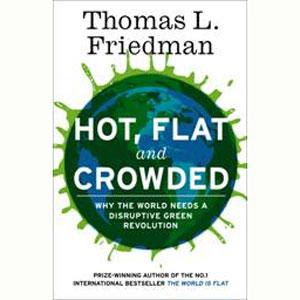The New Leaders
>> Monday, December 29, 2008
After three weeks, I have finish reading "The New Leaders - Transforming the art of leadership into the science of results" by Daniel Coleman. I learned a lot by reading this book. It gave me a lot of guidance especially during my decision making process.
The first part of the book is talking about "The Power of Emotional Intelligence". The most part I learn is the four dimension of EI. In AIESEC we talk a lot about competencies, it is very similar but more focus on two parts: personal competency (self awareness and self management) and social competency (social awareness and relationship management). Although these words are very familiar and comment sense, it actually has different perspective and definition.
For example, self awareness has three components - emotional self-awareness (reading one's own emotions and recognizing their impact; using "gut sense" to guide decision), accurate self-awareness (knowing one's strengths and limits) and self confidence (a sound sense of one's self-worth and capabilities). I used to though I have pretty high self awareness but I actually only strong at the self confidence but not too good at the emotional self-awareness. These four dimensions of EI/competencies gave me a better guideline to identify my strengths and weaknesses.
It also mentioned about "resonance leadership". To create a high effective leadership, we need to work on high resonance in the team. The leader's mood will influence the climate of the team and also the result. Therefore, great leadership works through the emotions. This is definitely something I have to put effort on.
Once I have a better understanding about the competencies and different types of internship, the author discuss about "making leaders" at the part II. This is also my favourite part of the book.
It taught me about the "Boyatzis's theory of self-directed learning". I really like this framework and is going to use this framework to be my learning framework. Basically it covers 5 questions:
1. My ideal self: what do I want to be?
2. My real self: Who am I?
3. My learning agenda: Building on my strengths while reducing gaps
4. Experimenting with new behavior: thoughts, and feelings
5. Developing trusting, relationships that help, support, and encourage each step in the process.
I really like the idea of building on my strengths while reducing the gaps (what do I want to be?)
There are four types of "planner":
- Directional or visionary planners: they are good at crafting a picture of a meaningful, distant future state; one that's grounded in values, beliefs, and a deep sense of what's important in life
- Goal-orientated planners: they get what they go after
- Action orientation- results in a high level of accomplishment in the short term. Moreover the freedom inherent in such planning adds an element of serendipity that enhance creativity.
Last but not least, the book has given me a very interesting description of my personality - "ego-defensive". If you know me well enough, I think you can understand the following paragraphs.
"Many things conspire to keep people from seeing their real slevees. The human psyche itself shields us from information that might undermine our self-perception. These ego-defences mechanisms, as they're called, protect us emotianally so that we can cope more easily with life. But in the process, they hide or discard essential information - such as how others are responding to our behavior. Over tie, these self-delusions that the unconscious creates become self-perpetuating myths, persisting despite the difficulties they cause.
Of course, ego-defense mechanisms have their advantages. Most high-functioning people, for instance, are more optimistic about their prospects and possibilities than the average person. Their rose-colored lenses fuel enthusiasm and energy for their undertakings. The problem comes when the defenses go too far, distorting a person's view of his real self - the person he has become - out of all proportion. The playwright Henrik Ibsen called such self-delusion "vital lies": soothing mistruths people let themselves believe rather than face the more disturbing realities beneath."




0 comments:
Post a Comment